Rev. David Schoenknecht has canoed the Canadian Boundary Waters with his church group most summers for more than 30 years. This year, he shared photos and observations from the week-long trip with our Love Your Place community. We asked David to share his thoughts once he got home from his time in this wild and remote place, and he has written his reflections below.
In the midst of his ordeals, Job speaks a riddle.
In Job 29, he contrasts the overflowing blessings of his life with God to the utter dismay over why his cup has become so bitter and empty.
Some might call the struggles that Job encountered divinely orchestrated tests; others, like Job’s colleagues, are too eager to find fault and point fingers; still others might say, “That’s just life, Job”—life “under the sun,” as Solomon often reminds us in Ecclesiastes. Stuff happens. Nevertheless, Job wants to crack the equation.
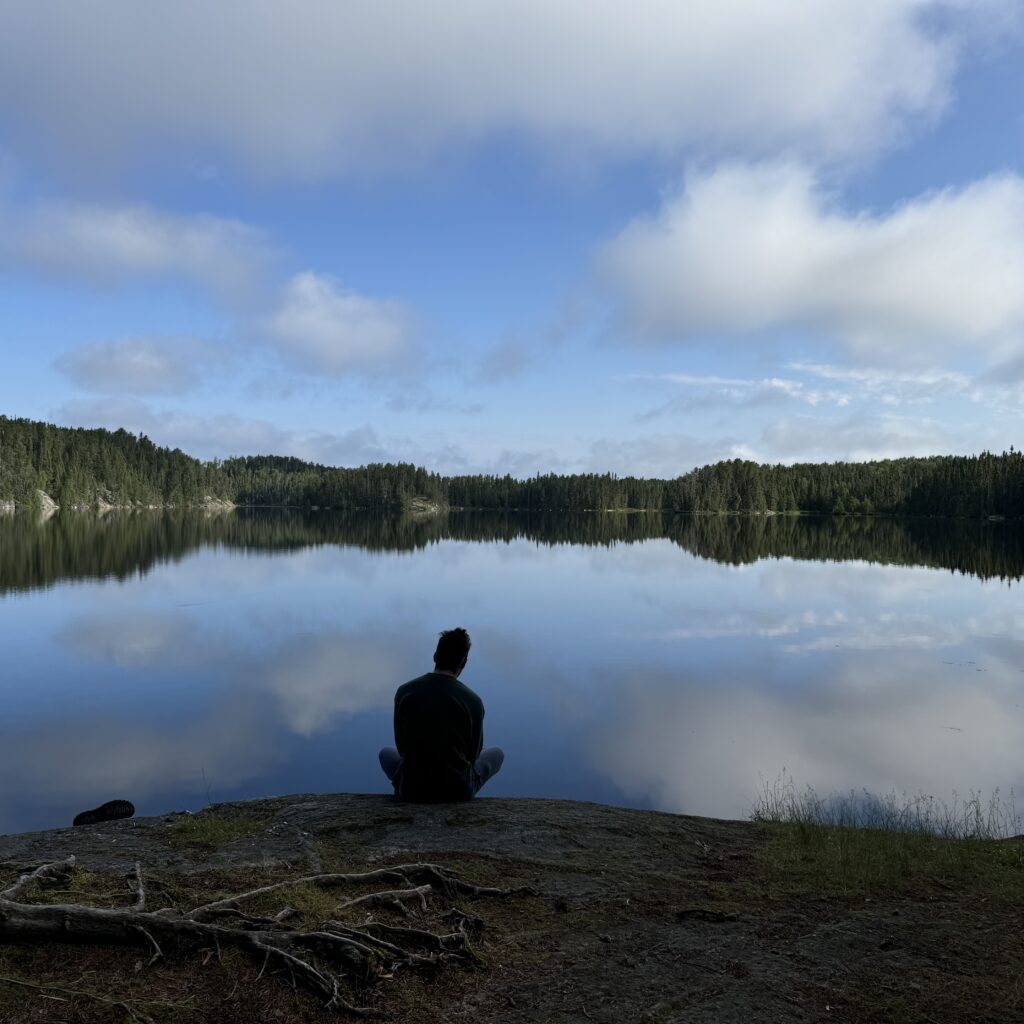
It doesn’t add up.
Deserved or undeserved? Punishment or proving ground of faith? “Why, God?” Inquiries like this are often complicated to sort through—if not impossible. My default is to contrive some level of “I can fix this” agency in my struggles, but that in and of itself is often a struggle. So, I identify with Job’s attempts to make sense of things.
But then the words of Isaiah 55 ring in my ears:
“’Come, all you who are thirsty, come to the waters… my thoughts are not your thoughts, neither are your ways my ways,’ declares the Lord. ‘As the heavens are higher than the earth, so are my ways higher than your ways and my thoughts than your thoughts.'”
So, here’s the twist – what’s the connection between coming “to the waters,” and faithfully going with the flow of God? Job 29 has a take on this too:
“My roots will reach to the water, and the dew will lie all night on my branches.”
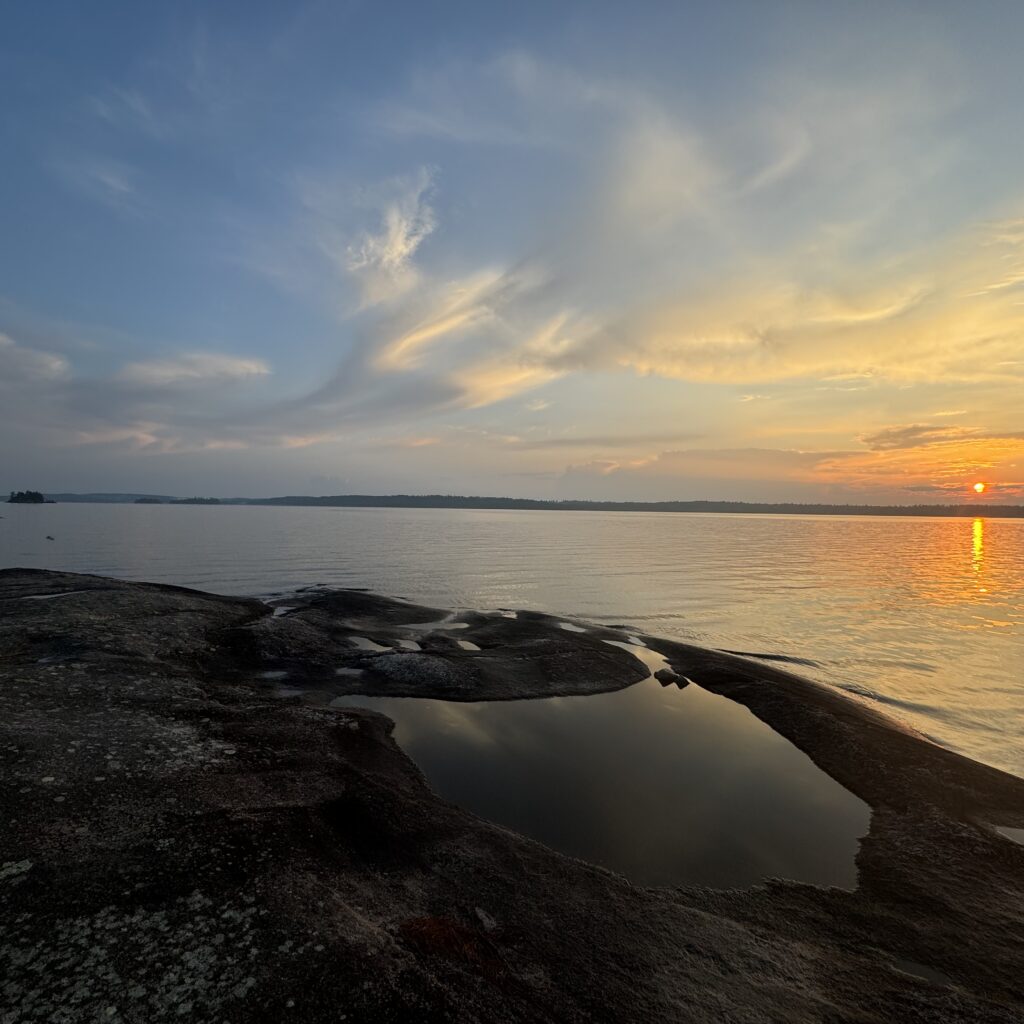
So much of the book of Job skirts along the fringes between assuming and understanding. But yes, Job, there is life-giving water to be freely had. Jesus said so in John 4:
“If you knew the gift of God and who it is that asks you for a drink, you would have asked him and he would have given you living water.”
But do our roots reach it? Do our branches fan out thirstily, receptively, for it? The ancient aquifers and nightly dews exist without our agency. Other than the act of stretching–of reaching out or going deep. I call that “faith.”
So where am I going with all of this? Let’s say we go to Canada?! Another twist? Kind of.
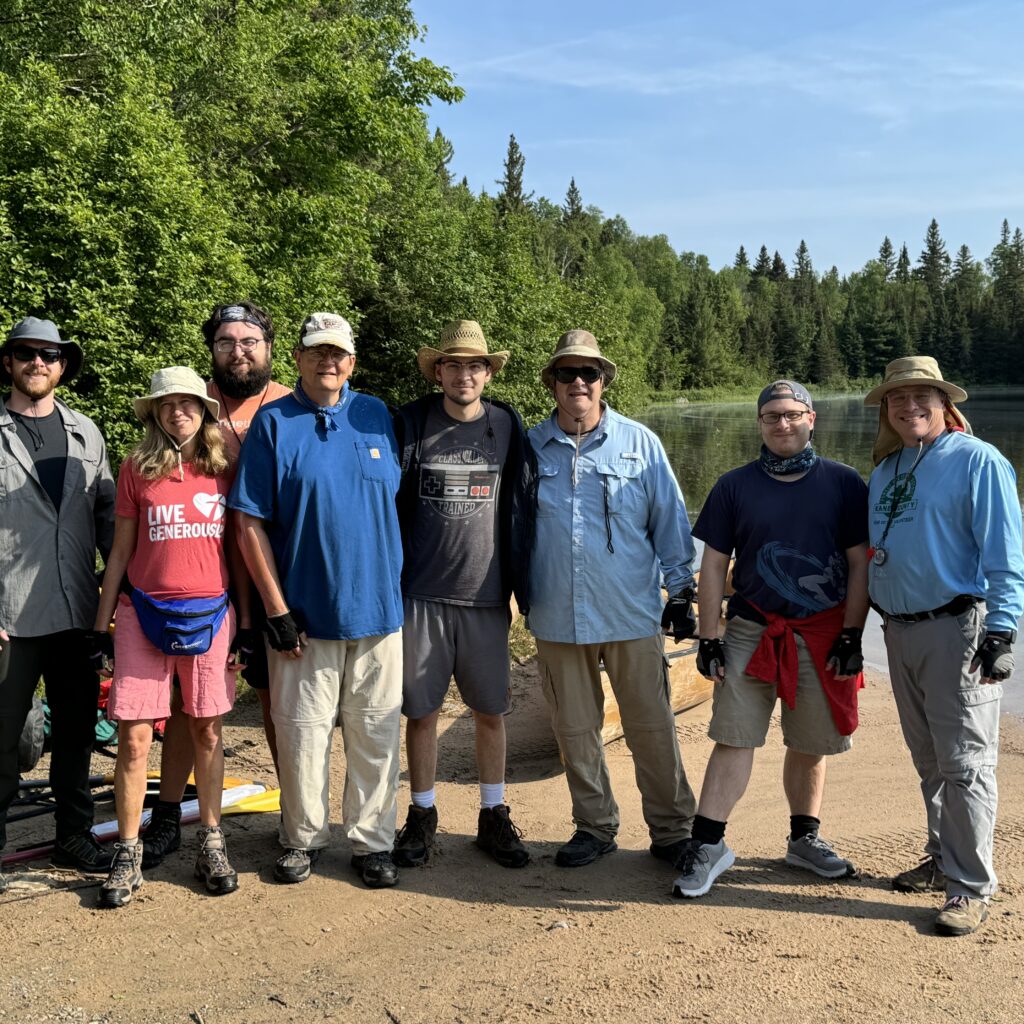
A Rocha encouraged me to summarize my week of #boundarywaters2024 posts from July’s 33rd somewhat annual Hosanna! Lutheran Church canoe trip for this blog. If you want to hear more of it, you can find my day-by-day accounts here, so this won’t be a rehash of the trip so much as it is an epilogue.
Without mincing words, how many outdoor experiences can only be conveyed by saying, “You just had to be there.” IFYKYK.
Photographs can never be panoramic enough. Words fall flat in our attempts to convey the wild. But is it really just about the aftermath—the stories, photos, the social media posts—or is our time spent in nature, at its best, just about being there. The deepening of our roots and a stretching of our branches toward God can happen too. Our time in nature is a time for stretching faith. I believe that anytime we step away from our carefully constructed status quo, we make space for faith to grow. Root-bound plants need to be re-potted, re-soiled, and moistened.
Come to the water.
There’s nothing quite like the twilight crescendo of a million humming mosquitoes to make you forget the roaring of urban traffic. The morning mist that rises silently between rocky islets stills the soul. The clarity of water that’s potable without treatment refreshes the spirit. The sudden appearance of a summer squall—with no apps to predict its coming—and then the swift parting of its ragged clouds like a curtain to reveal the Milky Way restores our wonder.
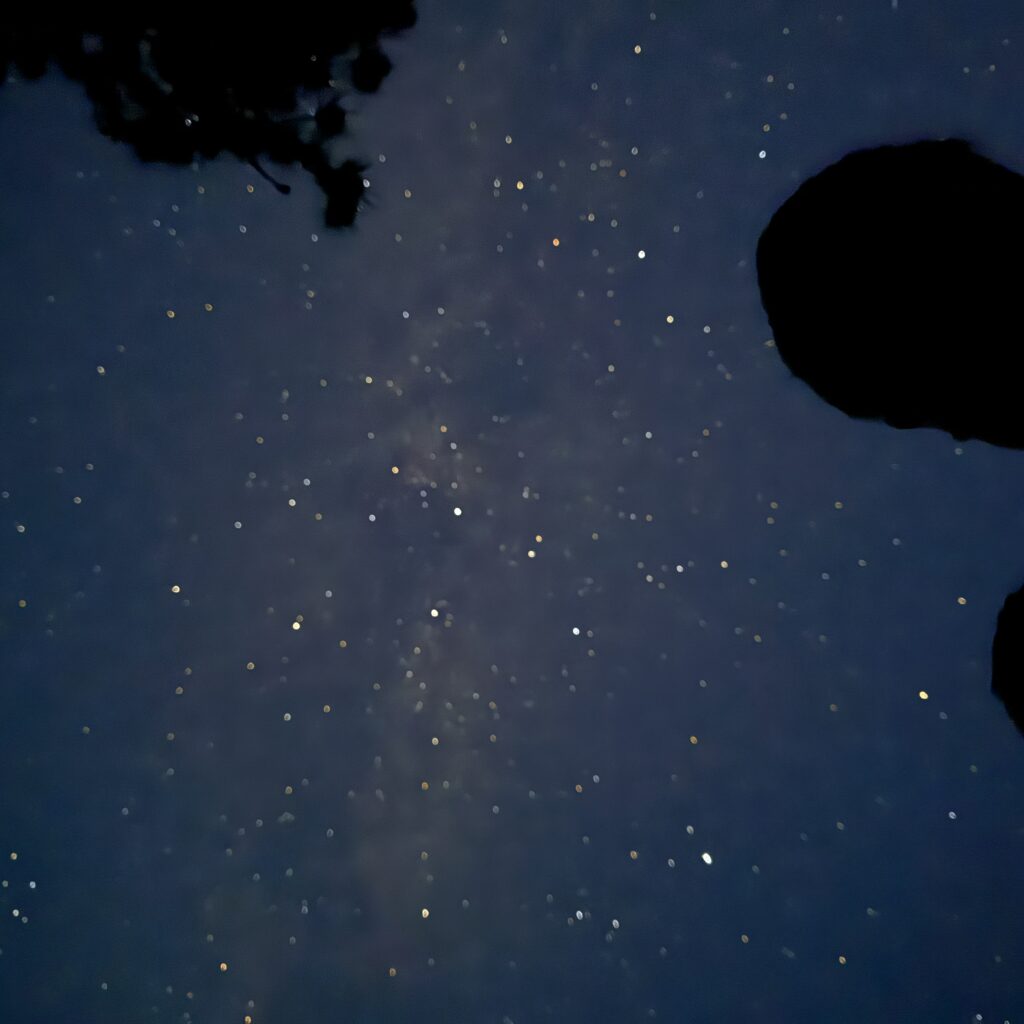
My roots will reach to the water.
It was a wet July in the White Otter Wilderness of the Canadian Boundary Waters. High water made the strategically aligned roots and branches of beaver dams easier to traverse than most years. The roots that criss-crossed slippery portages seemed more precarious. Where roots ended and water began was often difficult to determine.
Canoe camping in the Boundary Waters is not glamping by any stretch of the imagination. But to me, muddy boots, freeze-dried meals, hand-dug latrines, and campfire conversations are the best kind of glamping. I don’t find packing all my luxuries along with me to be all that restorative.
Dew will lie all night on my branches.
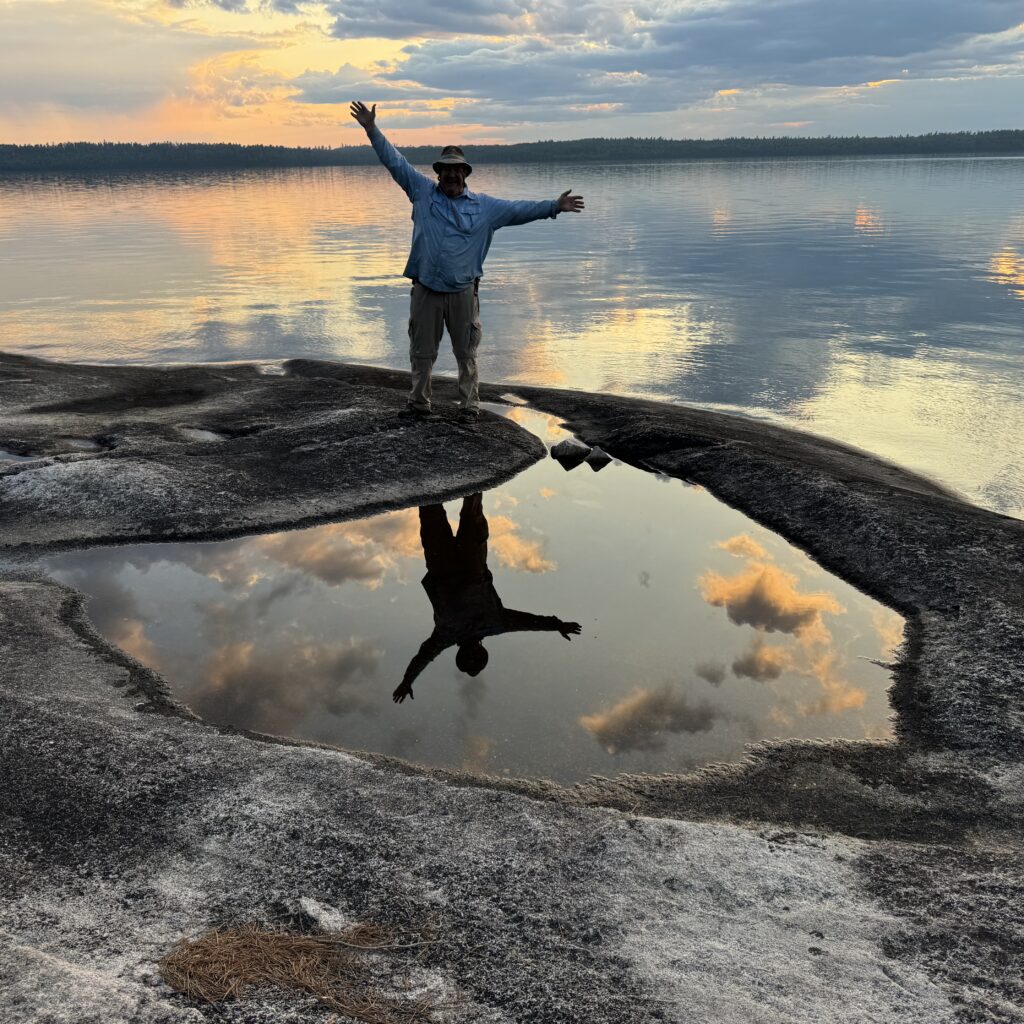
I won’t detail the events of my life prior to this year’s canoe trip, other than to say it was more of a quotidian grind than a Jobian ordeal. And yet I felt ground down to the point where I considered not going up north. But you know you are burning out when you don’t even have the hutzpah to do the thing that is a proven antidote.
If you ever feel wrung out, desiccated to the point of physical, mental, and emotional woodenness… trust me, you need the greening dew and it’s waiting for you.
Rev. David Schoenknecht has been a pastor, a religious studies professor, and currently works for Augsburg Fortress Publishers, finding time to also serve as the naturalist for the city of Elgin, Illinois.

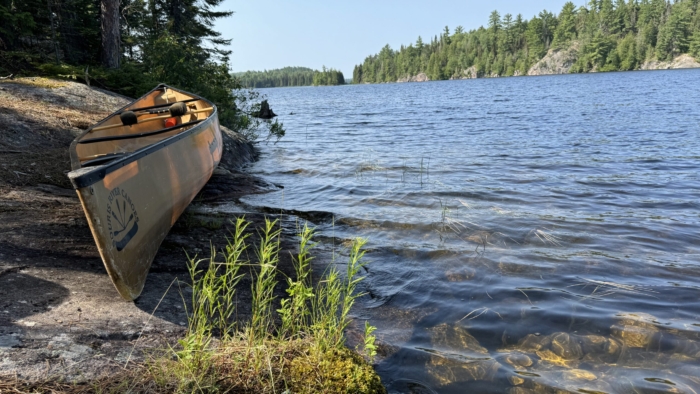







Add a Comment